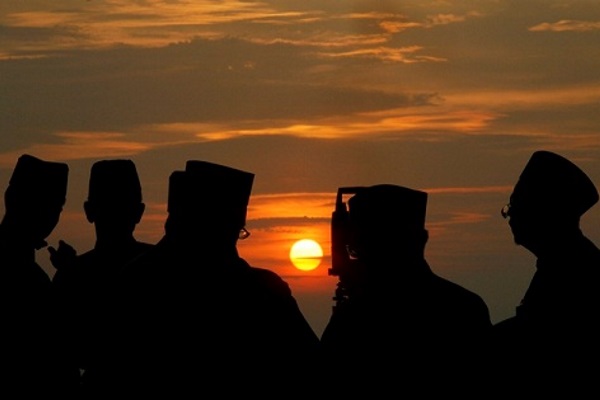پاکستان کے سرزمین اور بیرون ملک میں پاکستانی علمائے کرام کے لیے ضروری و لازمی اطلاع و اعلان (URDU)
Written by Shaykh Asrar Rashid
The Indian army has amassed on the borders of Pakistan and increased its oppression and grip over occupied Kashmir. While this is happening the ‘Sufi’ Ulama of Pakistan, who make the majority, are busy with what they deem as Kalam issues when in reality they are not Kalam issues at all but divisive issues.
We have a public that is polarised by secular thought on one side of the spectrum and on the other side rural and city people alike who have superstitious attitudes to religion with folklore ‘Sufism’. The ‘Ulama’ should be busy teaching all sectors the attributes of Allah and their proofs, especially Existence as many secular Pakistanis deny God’s existence. Those basic beliefs can be taught en masse. They are:
(a) The twenty attributes necessarily true of Allah are His (1) existence; (2) not beginning; (3) not ending; (4) self-subsistence, meaning not needing any place or determinant to exist; (5) dissimilarity to created things; (6) uniqueness, meaning having no partner (Sharik) in His entity, attributes, or actions; (7) omnipotent power; (8) will; (9) knowledge; (10) life; (11) hearing; (12) sight; (13) speech; such that He is (14) almighty; (15) all-willing; (16) all-knowing; (17) living; (18) all-Hearing; (19) all-seeing; (20) and speaking—through His attributes of power, will, knowledge, life, hearing, sight, and speech, not merely through His being.
(b) The twenty attributes necessarily impossible of Allah (21–40) are the opposites of the previous twenty, such as nonexistence, beginning, ending, and so on.
(c) The one attribute merely possible of Allah (41) is that He may create or destroy any possible thing.
The public unfortunately is not taught this and neither the basic proofs for such things. Instead, they are told slogans are belief and they should learn slogans and shout them in a fiery manner. The public has been programmed to think certain issues are necessary when they are not. There are issues that are being brought forth to the public that are disputed and not decisive yet the ‘Ulama’ and their followers make it out to be an essential creed. This ranges from what slogans you choose, the geocentric model of the universe and the stationary earth, to discussing Fadak, Jamal and Siffin to a public that barely knows the basics of the Creed or has never been told virtues of the prophetic household or the companions in general. The public should be made to sit in gathering where authentic hadith is recited on all these issues including virtues.
Many people would be offended if a person said ‘X, Y, or Z’ great scholar was mistaken on the geocentric model of the universe. So how offensive can it sound when a mistake is ascribed to someone infinitely greater and you know that the audience listening cannot understand intricacies of fiqh terms and Kalam jargon? It seems there is no balance at all and people love to take extremes on all sides.
An additional sad point is that many of those posing as ‘Ulama’ tend not to know how to read and understand Arabic which is the language of our religion. They just read Urdu books and even then on controversial issues and then they rush to do takfir of Muslims they disagree with. Those that do read Arabic limit themselves to the books of the Nizami curriculum and tend not to read around.
It is time the Sanusi Creed is taught up and down Pakistan and India.
Imam Ghazali (may Allah sanctify his secret) said something pertinent to our troubling situation when he warns regarding the harmful effects of disputes in Kalam. One harmful effect is that if we take the wrong approach, irrelevant to us being on the truth, we make the general public obstinate on falsehood:
It has another bad effect, namely that it hardens heretics’ attachment to their heresy and makes it firmer in their hearts by stirring them up and increasing their resolve to persist. This harm, however, comes about through bigotry born of argument, which is why you see the ordinary unlearned heretic fairly easy to dissuade from his mistakes through affability; though not if he has grown up in a locale where there is arguing and bigotry, in which case if all mankind from beginning to end were to join together, they would be unable to rid his heart of wrong ideas. Rather, his prejudice, his heatedness, and his loathing for his opponents and their group has such a grip over his heart and so blinds him to the truth that if he were asked, “Would you like Allah Most High Himself to raise the veil so you can see with your own eyes that your opponent is right?” he would refuse, lest it please his opponent. This is the incurable disease that plagues cities and people: the sort of vice produced by bigotry when there is argument. This also is of the harm of kalam.
As for its benefit, it might be supposed that it is to reveal truths and know them as they truly are. And how farfetched! Kalam theology is simply unable to fulfill this noble aim, and it probably founders and misguides more than it discovers or reveals. If you had heard these words from a hadith scholar or literalist, you might think, “People are enemies of what they are ignorant of.” So hear them instead from someone steeped in kalam theology, who left it after mastering it in depth and penetrating into it as far as any scholar can, and who then went on to specialize in closely related fields, before realizing that access to the realities of true knowledge was barred from this path. By my life, theology is not bereft of revealing and defining the truth and clarifying some issues, but it does so rarely, and about things that are already clear and almost plain before learning its details.
Rather, it has one single benefit, namely guarding the ordinary man’s faith we have just outlined [the Jerusalem Creed] and defending it by the argument from being shaken by those who would change it with heresies. For the common man is weak and susceptible to the arguments of heretics even when false and the false may be rebutted by something not in itself especially good; while people are only responsible for the creed we have presented above (Ihya’ ‘ulum al-din (c00), 1.86).


























































